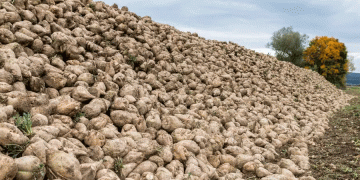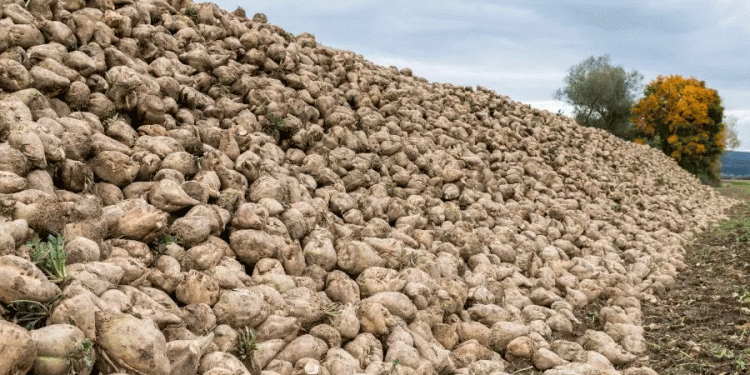The recently announced contract framework for British sugar beet growers represents a significant evolution in how producers manage price risk and market volatility. Through collaboration between NFU Sugar and British Sugar, growers now have multiple pricing options for the 2025/26 season, reflecting the increasingly complex calculus of beet production amid rising input costs and uncertain market conditions.
Contract Options: Balancing Security and Market Exposure
The new contract structure offers three primary pathways, each with distinct risk-reward profiles:
- Fixed Price Contract: £30/tonne for up to 65% of contract volume
- Guaranteed Base Price Plus Bonus: £25/tonne base plus market bonus for up to 100% of contract volume
- Index-Linked Contract: Market-based pricing for up to 50% of contract volume
This tiered approach represents a notable shift from the previous year’s contract, which offered £33/tonne fixed for 70% of volume or £30.70/tonne base plus enhanced bonus. The reduction in both fixed price and base price levels—approximately 9% and 18% respectively—reflects the challenging margin environment for processors while maintaining grower flexibility.
Risk Management Innovations and Support Mechanisms
Beyond pricing, the contract introduces several innovative features aimed at supporting grower viability:
- Yield Protection Contract: Available with a £1/tonne discount to fixed and bonus prices
- Transport Cost Coverage: Within 60 miles for all factories
- Interest-Free Loans: Improving cash flow during production period
- Free Frost Insurance: Critical protection against yield loss
- Late Delivery Compensation: Addressing harvest timing challenges
These provisions address key production risks that have become increasingly prominent amid climate volatility and supply chain disruptions. The yield protection option, in particular, represents a novel approach to production risk sharing in commodity contracts.
Productivity Requirements and Market Context
The contract maintains but modifies productivity requirements, allowing growers to retain contract tonnage entitlement (CTE) at 70% of planned production rather than the traditional higher thresholds. This temporary relaxation acknowledges the growing climate challenges facing UK beet production while maintaining overall supply commitment structures.
The market context for these changes is significant. According to the International Sugar Organization, global sugar prices have declined approximately 15% from 2024 peaks, while production costs for UK growers have increased by 18-22% over the same period according to NFU estimates. This squeeze makes sophisticated risk management increasingly essential for farm viability.
British Sugar’s new contract framework represents a pragmatic response to increasingly volatile agricultural markets. By offering multiple risk management pathways alongside enhanced production supports, the arrangement provides growers with unprecedented flexibility to align their contracting strategy with their individual risk tolerance and financial needs. While the reduction in base price levels reflects margin pressure throughout the supply chain, the addition of frost insurance, transportation support, and yield protection mechanisms creates a more comprehensive safety net for producers. For the UK beet sector to remain competitive amid climate challenges and global market pressures, this type of innovative, flexible contracting—which shares risks and rewards more equitably between growers and processors—will likely become increasingly necessary. The success of this approach will depend on transparent communication and continued collaboration between NFU Sugar and British Sugar throughout the coming season.































